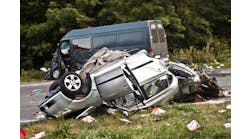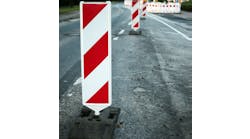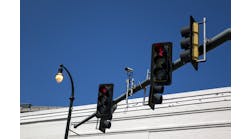The personal-finance website WalletHub today released its report on 2018's best and worst cities to drive in.
To determine the most driver-friendly places in the U.S., WalletHub compared the 100 largest cities in the nation across 29 key metrics of driver-friendliness. The data set ranges from average gas prices to annual hours in traffic congestion per auto commuter to auto-repair shops per capita.
Some key findings in terms of comparing the best and worst cities for driving in particular categories included the following:
- Greensboro, N.C., residents spend the fewest annual hours in traffic congestion per auto commuter, 4, which is 25.5 times fewer than in Los Angeles, the city where residents spend the most at 102;
- Gilbert, Ariz., has the fewest car thefts (per 1,000 residents), 0.49, which is 33.1 times fewer than in Oakland, Calif., the city with the most at 16.23.
- Oklahoma City has the lowest average gas price, $2.58 per gallon, which is 1.5 times lower than in San Francisco, the city with the highest at $3.85 per gallon.
- Riverside, Calif., has the lowest average parking rate, $1.43 per two hours, which is 19.2 times lower than in Buffalo, N.Y., the city with the highest at $27.44 per two hours.
In order to determine the best and worst cities for drivers, WalletHub compared a sample of the 100 most populated U.S. cities across four key dimensions: cost of ownership & maintenance; traffic & infrastructure; safety; and access to vehicles & maintenance.
Out of the 100 largest U.S. cities, those ranked best to drive in included Raleigh, N.C.; Corpus Christi, Texas; Orlando, Fla.; Greensboro, N.C.; Plano, Texas; Winston-Salem, N.C.; Durham, N.C.; El Paso, Texas; Jacksonville, Fla.; and Tampa, Fla. The cities ranked among the worst for driving included Detroit; San Francisco; Oakland, Calif.; Philadelphia; Seattle; Boston; New York; Newark, N.J.; Los Angeles; and Chicago.
The full report can be found here.
----------
Source: WalletHub



